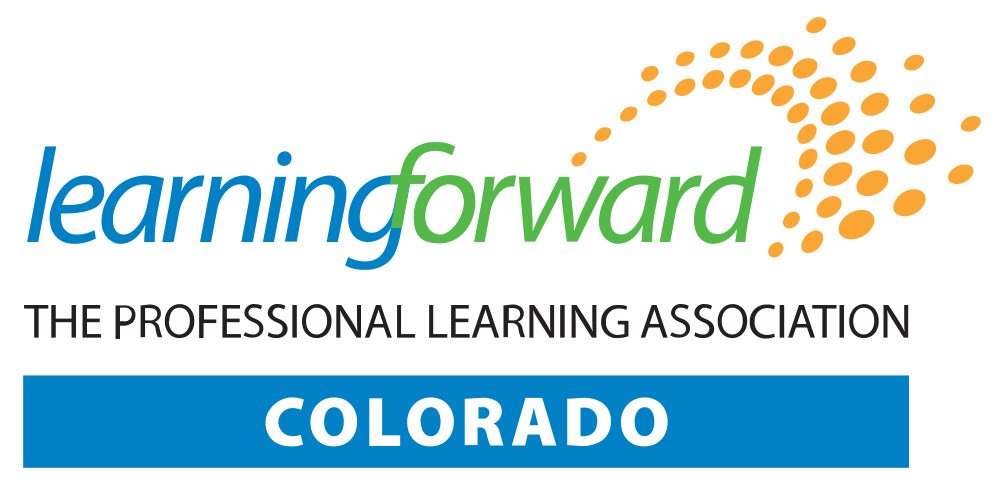An Interview with Justin Darnell and Michael Wacker,
Denver Public Schools Office of Teacher Learning and Leadership
by Joan Watson
You are responsible for Professional Learning – for your team, your department, your school, your district. You want to make every professional learning opportunity meaningful, applicable, absolutely stellar for every participant. A daunting task? Yes! But two Denver Public Schools (DPS) Professional Developers, Justin Darnell and Michael Wacker, have designed professional learning for their colleagues in DPS that is achieving these goals as well as new heights of excellence and acceptance. Using the Learning Forward Standards for Professional Learning (PL) (pdf), Justin and Michael are modeling how the standards integrate to help every professional learning endeavor reach new standards of excellence.
I think it is important to keep in mind this quote prominent on the “Office of Teacher Learning & Leadership” website: Put kids at the center. Learn every day. Demand results. Plan carefully. Attend to relationships. Develop strong leaders. Work in teams. Look at data. Assess your impact. Reflect often. Check your assumptions. [Deutschman, A. (2007). While designing their training to introduce and implement the Professional Learning Standards, Justin and Michael incorporated this over arching mission as well as the PL standards into every aspect of their planning. For example, they created a professional learning community for their audience through online and face to face experiences in which partners and teams shared and critiqued each other’s work. They included leaders as learners as they examined the standards in detail. Technology was incorporated into their delivery and truly inviting, non-threatening coaching was offered to folks who had less expertise and experience with the online components of the training. So many needs were considered and addressed as Justin and Michael used the PL Standards to design their training.
Using all of this information, Justin and Michael (I’m resisting calling them “the boys”; it seems a bit sexist.) designed a four session training course which includes the following:
Session One
- Examination of the Standards – What and Why?
- Analysis of a Professional Learning (PL) opportunity which participants were developing or revising using the lens of the PL Standards.
- Considering the PL Standards, what did they observe? What had they included or omitted in their design?
- Analyzing the collective strengths and weaknesses, what does the group need to focus on in the future to more effectively meet the PL Standards?
- Selection of a standard to study more deeply in order to improve their PL offerings.
Session Two
- Participants engage with peers to dig more deeply into one PL Standard and discuss how to account for this Standard in their PL design.
- Webinar in which Michael and Justin model how they developed their courses based on knowledge of the Standards and their importance to quality, effective professional learning offerings.
Session Three
- Participants make use of tools developed to support application of the Standards to their PL design.
- Participants select a partner, create working agreements, write an essential question, agree on a time for feedback, share feedback, and make revisions based on feedback. (Justin and Michael acknowledge that this is a “subversive” way of encouraging folks to use technology which they had not previously used, e.g., Google docs.
Session Four
- Share.
- Reflect.
- Align PL initiatives that intend to achieve similar outcomes.
- Design next steps for each participant’s unique position and expectations.
Justin and Michael anticipate following this training with “Intensive Standards Sessions” which include a more in depth study of the meaningful use of data, assessing professional learning, and how to continuously offer this Professional Learning Standards training, working to attract appropriate audiences.
So, what were the design results? Justin and Michael are more than happy to share their thinking, their work, their results with everyone via the DPS website. They want people to benefit from the work they have done. They ask only that you attribute their work to them and that you reciprocate by sharing with them any new ideas, enhancements, questions that you experience based on their work.
Further, they look forward to using instruments such as the Standards Assessment Inventory (SAI) and Innovative Configuration (IC) Maps once Learning Forward has completed their development.
Have you heard of EdCampDenver? This is a fully organic model of “unconference” professional development. Need to break down and connect learning silos? Check out https://bit.ly/edcampdenver. To my mind, this unconference format presents fascinating and almost limitless possibilities!
In closing, this column is devoted to celebrating the excellent teaching which occurs everyday for students in Colorado. Thanks to Justin and Michael for sharing their story! It is an inspiring manifestation of the Learning Forward Colorado Mission: To ensure all educators in all schools experience high quality professional learning as part of their daily work for the purpose of increasing student learning. If you have a story to share, please let us know (Joan Watson – [email protected]).
Contacts:
[email protected]
[email protected]
